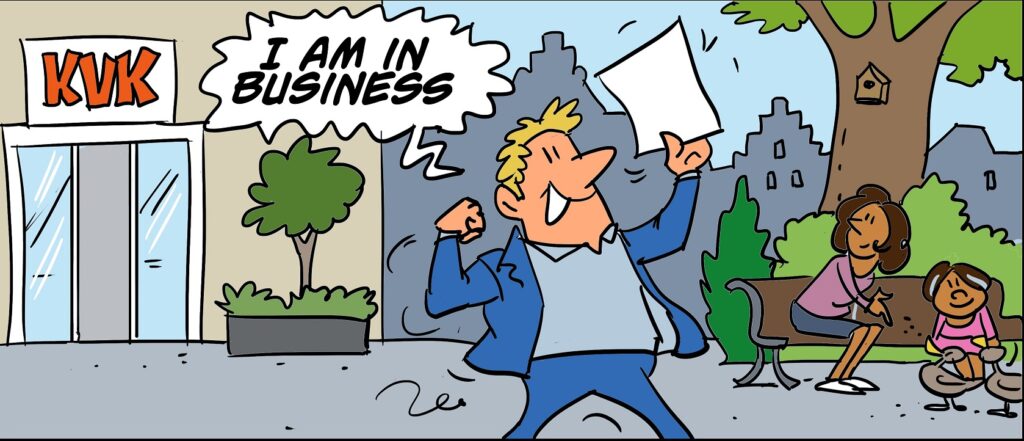Freelance versus employment is the most frequently asked question. What is possible and what should you do?
Freelance versus employment
The moment you google about this topic in Dutch you find all kind of rules and regulations that basically tell you there is no choice. It is either employment or freelance, not something you can choose between. Is that right?
The issue is about social premiums. The Dutch Government is afraid the base for social premiums will erode when employees in the Netherlands terminate their employment. These former employees return to the same employer, now referred to as client.
This ‘client’ then have them perform the identical job, using the identical facilities. The difference is that the ‘client’ does not pay salary, but an invoice. The invoice is less than salary costs, which makes the ‘client’ happy. The former employee has entrepreneurs credits, hence pays less tax, is freelancer is also happy.

Belastingdienst
The unhappy party in this deal is the Dutch tax office. Before this paper change the employer was paying social premiums for the employee. Such as unemployment, disability maybe even pension premiums. Now this paper change is active, no such employers costs come on top of the costs of the employee. Only the invoice is to be paid.
The Dutch tax office is fighting this situation. You may find a DHL or PostTNT person at your door fully dressed up in their logo and driving a van with the logo. That is not an employee, but a self-employed person. The nurse visiting clients in your neighborhood with her own car, short term as these clients are at the end of their life span, is an employee. The world upside down.
One client is no client
The moment you have decided to do a freelance job for 1 client, you visit the Chamber of Commerce and they send you away. You are not an entrepreneur, but a deemed employee. But are you?
One client is a client
We have in international situations a view, confirmed by the Dutch tax office, that differs from the Chamber of Commerce. If you have an employer abroad, who is not willing to set up employment in the Netherlands, as they have learned about all the obligations of Dutch employers. Or you found a company that likes you to work for them, but not via employment. Then it is possible.
In the international situation you are not eroding the Dutch social premium base, as there was none to start with. Plus if you do not accept the contract, there is no income. Hence, one client is a client. We will be pleased to assist you.
What should you choose if you have the choice?
If you have the choice between employment and freelance/self-employed, what should you choose? For us without a doubt the employment. Dutch labour law protects your rights under employment. If you are employed you are insured for unemployment and disability. This is often an under estimated factor. The insurance to take out to match what the employer offers you, easily exceeds the EUR 10.000 premium per year. The insurance company will ofcourse try to deny possible claims.
Another aspect that should not be underestimated is the fact of being an entrepreneur. Not being a simple employee. A simple employee performs the job, collects salary. Happy days. The entrepreneur needs to create an invoice inline with invoice requirements. File Value Added Tax returns based on a correct bookkeeping. A bookkeeping that needs to be stored for at least seven years. The income tax return is a more complicated entrepreneurs income tax return. Then still the tax office can perform an audit and disagree with what was filed sofar. Such a correct is often for the past five years.
Tax is exciting
We think tax is exciting. We are excited that you found a foreign company that likes you to work for them. In our opinion it is best to set up a Dutch payroll for that foreign company. If that foreign company is not willing to comply with the Dutch labour law rules, the second best option is contracting. In this setting the contracting is not a problem. We are happy to assist you.





